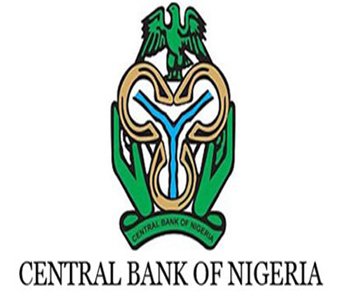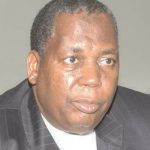Against expectations of financial analysts that the Monetary Policy Rate would remain unchanged at 12 per cent, the Monetary Policy Committee of the Central Bank of Nigeria on Tuesday hiked the MPR by 200 basis points to 14 per cent.
The 14 per cent MPR announced by the CBN is the highest in over a decade.
However, the committee left the Cash Reserve Ratio and the liquidity ratio unchanged at 22.5 per cent and 30 per cent, respectively.
The CBN Governor, Mr. Godwin Emefiele, who announced the decision of the committee after a two-day meeting held at the apex bank’s headquarters in Abuja, said eight out of the 12 members of the committee attended the meeting.
Out of the eight, he said five members voted in favour of monetary tightening, while the other three voted to hold the MPR at 12 per cent.
The MPR is the anchor rate at which the CBN, in performing its role as the lender of last resort, lends to the Deposit Money Banks to boost the level of liquidity in the banking system.
If the apex bank intends to increase the level of liquidity in the economy, it reduces the MPR but increases it whenever it desires to tighten money supply.
In taking the decision to increase the MPR, the CBN governor said the committee was faced with two policy choices – whether to hold or reduce the rate to stimulate growth, or increase it in order to curb inflation.
Emefiele, however, said when considered from the standpoint that the primary mandate of the CBN was to maintain price stability, the committee decided to focus on its mandate by checking inflationary pressures.
The governor explained that members of the committee agreed that the economy was passing through a difficult phase, adding that the concern was that headline inflation had risen significantly in June.
He said the June inflation of 16.5 per cent, which is the highest in 11 years, was approaching twice the upper limit of the CBN policy reference band.
The committee, he said, noted that inflation had risen significantly, eroding real purchasing power of fixed income earners and dragging down growth.
The CBN governor said the high inflationary trend had culminated in negative real interest rates in the economy, noting that this was discouraging savings.
According to him, members of the committee also noted that the negative real interest rates did not support the recent flexible foreign exchange market as foreign investors’ attitude had remained lukewarm, showing unwillingness to bring in new capital under the circumstance.
He said the decision to raise interest rate would give impetus to improving the liquidity of the foreign exchange market and the urgent need to deepen the market to ensure self-sustainability.
The governor said members were of the opinion that the liquidity of the foreign exchange market would boost manufacturing and industrial output, thereby stimulating the much needed growth.
He stated, “The MPC was further concerned that while the situation called for obvious tightening of the monetary policy stance, the technical recession confronting the economy and the prospects of negative growth to year-end needed to be factored into the policy parameters.
“The arguments in favour of growth were anchored on the premise that the current inflationary episode was largely structural.”
“Members called on the Federal Government to fast-track the implementation of the 2016 budget in order to stimulate economic activity to bridge the output gap and create employment,” he added.
When asked about the state of Nigerian banking system, the governor maintained that the industry remained strong and that there was no need for depositors to panic.
He said the fact that the management team of a bank was removed by the CBN did not mean that the lender was in distress.
Such an action, he noted, would always be taken to protect depositors’ funds when there were infractions of rules and regulation.
Emefiele added, “Let me say that since 2009, the CBN has come out to say boldly that no depositor of a Nigerian bank will lose their deposit and we stood by that to the extent that the CBN even issued guarantees in favour of any depositor and those guarantees have indeed not crystallised since 2010.”
On the bank’s assessment of the new foreign exchange policy, Emefiele said, “It has been excellent so far given that we had a 16-month period of no activity in the foreign exchange market.
“I will say that the results have been good with a few activities that we are not too happy about, but we feel that in the course of time, because it is just one month since this started, there is a lot of room for improvement.”
However, financial analysts faulted the decision of the MPC to increase the benchmark lending rate from 12 per cent to 14 per cent, adding that the decision would not result in the CBN’s objective of checking inflationary pressure.
The Head, Department of Banking and Finance, Nasarawa State University, Keffi, Uche Uwaleke, said the banking sector would be worst hit by the latest decision of the CBN.
He said, “In my view, the outcome of the MPC meeting inspires little prospects for early economic recovery. I had expected some easing of the monetary policy or at worst an unchanged MPR in view of the slump in the Gross Domestic Product.
“With the benchmark rate jumping from 12 per cent to 14 per cent, the CBN has clearly chosen to focus on inflation rather than growth. Unfortunately, this approach will most likely miss the target. The banks will be the worst hit as increase in the MPR will automatically lead to another squeeze within the system.”
The President, Time Economics Limited, Dr. Ogho Okiti, said while the tightening of the MPR would reduce negative real interest rate as well as stabilise the naira, it would not check the current level of inflation.
A Professor of Economics at the Olabisi Onabanjo University, Sherriffdeen Tella, said, “It is an unfortunate decision. When you have prices going up, what you should do is to find a way to reduce the interest rate, and not to increase it; more so, when you know that there is already a liquidity crisis in the country.
“This decision by the MPC cannot reduce inflation, we will continue to grapple with higher interest rates.”
The Chief Executive Officer, Economic Associates, Dr, Ayo Teriba, said the decision showed that the MPC was not sensitive to the plight of Nigerians.
He said, “At a time that the country is on the brink of recession, it is expected that the CBN will support economic recovery by easing the monetary policy. The CBN has been maintaining a tight monetary policy and I believe this may have partly contributed to the situation we are in today. The MPC is not sensitive to the economic situation of Nigerians. I believe this hike will worsen economic recession.
“They should have reduced the MPR and the CRR to provide support for economic recovery. The decision shows that the monetary policy is disconnected from the people.”
Speaking in the same vein, the Chief Executive Officer, Cowry Assets Management Limited, Mr. Johnson Chukwu, stated, “The inflationary pressure we are experiencing is caused by cost-push inflation, that is, foreign exchange-related problems and increase in energy costs and the rest. It is not as a result of excess liquidity in the system. So, you cannot say you want to reduce liquidity in the system to fight it.”
The Managing Director, Financial Derivatives Company Limited, Mr. Bismarck Rewane, said the decision would lead to increase in borrowing cost for the Small and Medium-scale Enterprises and that the general economic situation would be very tough over the next few months.
He, however, said the MPC decision was a tactical move to attract the much-needed foreign capital into the economy.
The Chief Executive Officer, Renaissance Capital, a United Kingdom-based investment bank, Mr. Temi Popoola, said the firm welcomed the decision as it would help the CBN to solve the biggest problem of attracting dollars into the economy.
“Today, it appears the biggest challenge before the CBN is how to attract dollars into the economy; and we feel that the decision by the MPC is a good step in that direction,” he stated.



